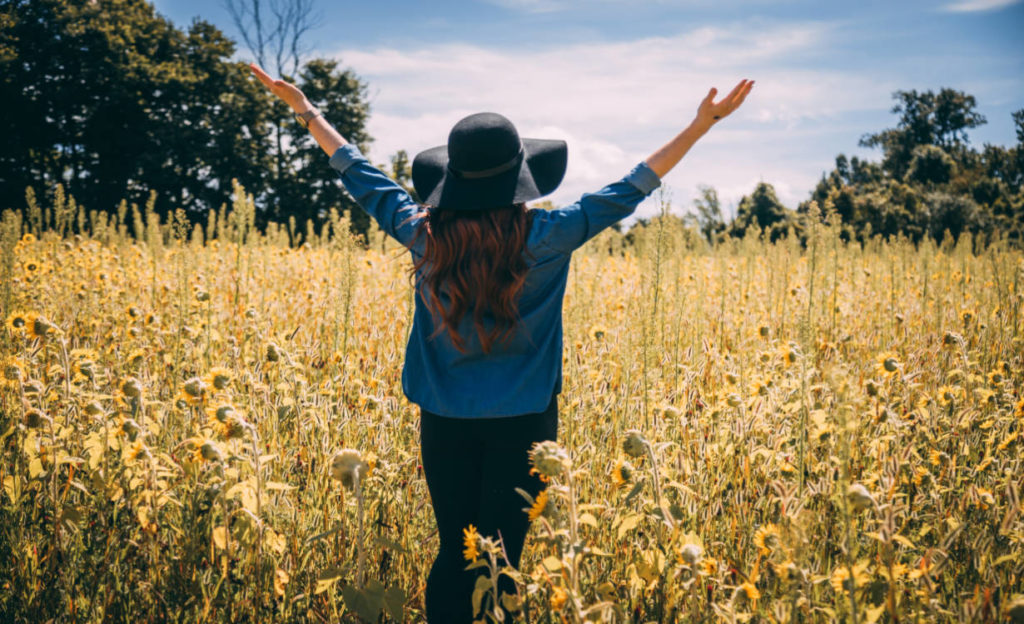
- Gratitude is scientifically proven to improve your psychological and physical health and well-being.
- Gratitude also increases your chances of developing great relationships.
- Learning how to practice gratitude is a skill anyone can learn.
Are you a “glass half full” or “glass half empty” type of person?
We’ve all had moments when we’ve felt sorry for ourselves, and moments when we’re overwhelmingly grateful, but did you ever ask yourself which is better for you and why?
Gratitude is good for you
Modern psychology tells us that those who practice gratitude over self-pity are mentally stronger and healthier for it – gratitude has some awesome psychological benefits including lowering stress, increasing the likelihood of experiencing joy, and decreasing episodes of depression and anxiety.
Gratitude also increases your chances of having life-giving relationships. Gratitude helps us to appreciate those around us who enrich our lives and also encourages us to express gratitude to them, which reinforces a cycle of positive affirmation. Practising gratitude helps us avoid taking our friends and loved ones for granted and this helps strengthen our relationships by keeping our hearts open to giving generously
Moreover, there’s also some physical benefits from showing gratitude daily. Some notable ones include: improving the quality of your sleep, heart health and even bolstering your immune system.
Gratitude is a worthy challenge
Gratitude isn’t something that just shows up one day, it is a discipline, something we have to practice to get right. So, if gratitude is something you’re struggling with, understand that you’re not weird or dark.
Being able to see and take stock of the reasons we have to be grateful each day is something we have to practice and in order to practice it one needs to make time and space in our life for the exercise.
Making time to reflect and find the reasons to be grateful each day will require some sacrifice of your time, but the investment in this life-skill will pay you dividends in almost every area of your life.
So, find the time and if you have to, schedule a time and place to practice it.
Training yourself to be grateful
Here are a few time-tested ways to develop your ability to be grateful.
Bad habits that eat-up gratitude
Telling yourself “if only…” is a bad-habit that prevents you from practising gratitude.
If only I had more time; if only I had better friends; if only I made more money; if only my teacher knew how hard I tried on that test. It is so easy to repeat this litany to ourselves, but this victim mentality will prevent you from finding the reasons to be grateful in any given situation.
So, if you hear this litany in your head or one similar like “why me”, tell them to take a hike!
Focus on your blessings
This one may seem pretty obvious, but how often do you take time to count your blessings? It may seem like a silly exercise, but as the reasons to be grateful pile up it is amazing how your whole disposition can change. You start seeing all these reasons to be grateful around you instead of the reasons to feel sorry for yourself.
Give this a try, it only takes a few minutes and you’ll surely come to see it is a worthy exercise.
Practice courteousness and generosity
Finally, always remember to be generous with your please and thank yous and try your best to look the person in the eye when offering them. It is a time-tested way to practice gratitude and also a meaningful way to share it.
Oh and of course, make an effort to be generous. Generosity is a way of acknowledging the blessings in our life and a way of spreading blessings to others. Gratitude is intimately linked with generosity.
If generosity does not come easily to you, take some time and reflect if you’re practising gratitude. Odds are, at some point, you stopped counting your blessings.
Thanks for reading!